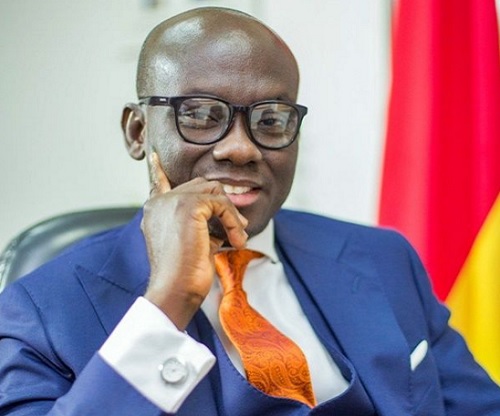|
Getting your Trinity Audio player ready...
|
The Office of the Attorney-General has tabled before Cabinet a bill that seeks to reform the criminal justice system by overhauling the jury system and reducing interlocutory applications in the hearing of criminal cases.
The bill, expected to receive Cabinet approval this month, also seeks to eliminate other aspects of the criminal justice system which result in unnecessary delay.
Under the bill, interlocutory appeals in criminal proceedings will be prohibited until the prosecution has closed its case.
Additionally, the bill has other stipulations, including providing for cases to be heard on a day-to-day basis, introducing the taking of evidence through video conferences, and proposing that no criminal case should be adjourned beyond 14 days.
Aside from that, the Attorney-General would determine whether a murder case should be tried by a jury or by the bench.
Visit
The Attorney-General and Minister of Justice, Godfred Yeboah Dame, disclosed this when the family of the late Major Maxwell Adam Mahama paid a visit to him and his officers last Wednesday following the successful prosecution of the 12 persons convicted of the murder of the military officer in the line of duty.
The delegation was led by Maj. Mahama’s mother, Veronica Bamford, and his uncle, Kaleona Tizzala, and also included two siblings of the late soldier.
Present at the meeting were the Deputy Attorney-General, Alfred Tuah-Yeboah; the Solicitor-General, Helen Akpene Ziwu; the Director of Public Prosecutions, Yvonne Atakora Obuobisa; and a Chief State Attorney, Evelyn Keelson, among other state attorneys.
It was also attended by Col. Daniel Mensah-Gorman of the Legal Department of the Ghana Armed Forces.
Delay
Mr Dame said the trial of the 14 accused persons for the murder of Maj. Mahama brought to the fore some of the severe challenges with the criminal justice system, and would, therefore, occasion important reforms in the trial of criminal cases in Ghana.
He explained that, for example, the determination of the case delayed significantly because of the involvement of the jury.
The jury is made up of seven ordinary but educated persons who, subject to the directions of the judge, decide the guilt or innocence of an accused in a case tried upon indictment.
He said the high treason case in which six persons were convicted lasted only two years because of the involvement of the three-member panel instead of the jury.
He said the Maj. Mahama case lasted for five years because the jury was involved.
The A-G also cited the verdict of the jury in the trial of Gregory Afoko and Asabke Alangdi as one that highlighted severe challenges with the jury system.
He wondered why the jury returned a verdict of not guilty on the conspiracy charge in favour of Afoko. Still, he returned a verdict of guilty on the same charge against Alangdi, adding, “The jury returned a verdict that defied all reasoning”.
Mr Dame said the bill would provide alternative jurors so that in the absence of one, the alternative juror(s) would fill the vacant seat to ensure that the trial was not put on hold.
Toll
Mrs Bamford, who sobbed intermittently, expressed appreciation to the Attorney-General for taking a keen interest in the case.
She explained that the murder of her son had taken a toll on her mental health, stressing that “I hope this never happens to anyone; I have suffered a lot, and I am even surprised that I am still here.
“May they (convicts) never come out, and any government that will give any of them pardon will have my son’s blood on its hands,” she said.
Mr Tizzala said it had taken the family seven long years to get justice for their beloved son.
He commended the Office of the Attorney-General and the Ministry of Justice for their dedication to bringing finality to the matter.
He indicated that the family was satisfied that the prosecuting attorneys of the Office of the Attorney-General stayed the course, were diligent and succeeded in ensuring that those who carried out the crime of murder against their son had been brought to justice.
He said the family was relieved by the unanimous verdict of the seven-member jury against the 12 convicts.
“This is not because the sentence will bring back our son, but it’ll make us feel better to the extent that in the end, the verdict will be a deterrent to people who may ever think of taking the law into their own hands by brutally murdering any innocent son or daughter of the soil.
“This is why we’re very happy with the end result,” he said.
Background
A seven-member jury last Monday returned a unanimous verdict of guilty against a former Assembly Member and 11 others at the High Court in Accra in the murder trial of Maj. Mahama.
The former Assembly Member at Denkyira Obuasi in the Central Region, William Baah, was found guilty on the charge of abetment of murder, while Bernard Asamoah, Kofi Nyame, Akwasi Baah, Kwame Tuffuor, Joseph Appiah Kubi, Michael Anim, Akwesi Asante, Charles Quaining, Emmanuel Baidoo, John Boasie and Kwadwo Animah were found guilty of conspiracy to commit murder.
The jury also returned a guilty verdict on the charge of murder against Asamoah, Nyame, Baah, Tuffuor, Kubi, Anim, Asante and Quaining.
Two others — Bismark Donkor and Bismarck Abanga — who stood trial alongside the 12, were, however, acquitted and discharged after the jury returned a verdict of not guilty to the charge of conspiracy to commit murder.
All 12 were sentenced to life imprisonment due to the amendment to the Criminal Offences Act, 1960 (Act 29), which changed the punishment for murder from death to life imprisonment.
The verdict came after five years of trial at the Criminal Jurisdiction of the High Court presided over by Justice Mariama Owusu, a Justice of the Supreme Court sitting with additional responsibility as a High Court Judge.
Graphic online




